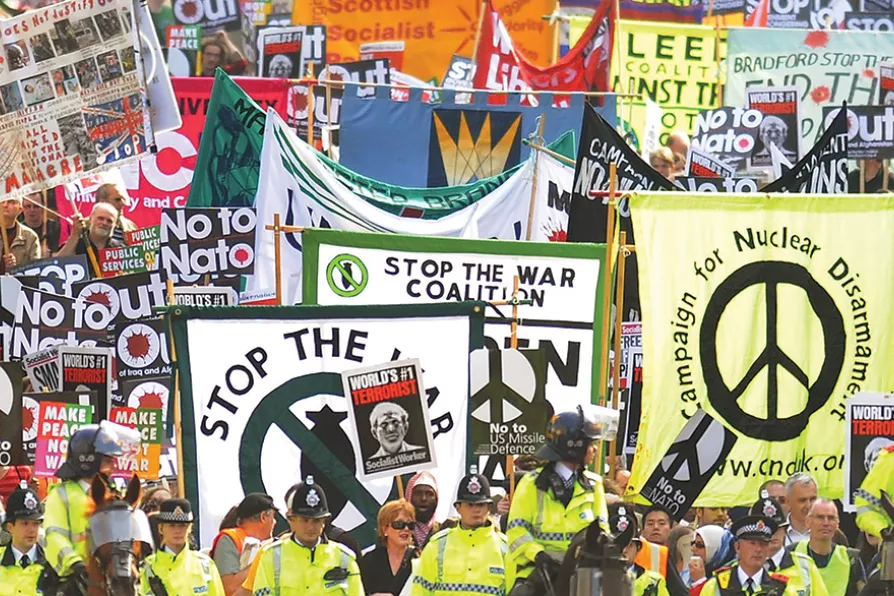This weekend, the NEU holds a special conference to debate changing its approach to organising teaching assistants, which a 2017 TUC agreement forbids. General secretary DANIEL KEBEDE outlines the choices before delegates

 SCARING THE ELITES: An anti-war march in Manchester city centre, where the 2008 Labour Party Conference was held
SCARING THE ELITES: An anti-war march in Manchester city centre, where the 2008 Labour Party Conference was held
TWO polls published earlier this month make interesting reading.
Asked by YouGov “Do you think the UK was right or wrong to take military action in the following wars…?”, just 26 per cent of respondents answered it was right to take military action in the 1991 Gulf War, 29 per cent in Kosovo in 1999, and only 20 per cent in Afghanistan and 16 per cent in Iraq in 2003, while 48 per cent and 54 per cent said it was wrong to take military action in Afghanistan and Iraq, respectively.
Another poll by Focaldata for news and opinion website Unherd found 44 per cent of respondents thought Britain should be less engaged in overseas conflicts, compared to just 7 per cent who said the nation should be more engaged.

On January 2 2014, PJ Harvey used her turn as guest editor of the Today programme to expose the realities of war, arms dealing and media complicity. The fury that followed showed how rare – and how threatening – such honesty is within Britain’s most Establishment broadcaster, says IAN SINCLAIR

As the cover-ups collapse, IAN SINCLAIR looks at the shocking testimony from British forces who would ‘go in and shoot everyone sleeping there’ during night raids — illegal, systematic murder spawned by an illegal invasion












